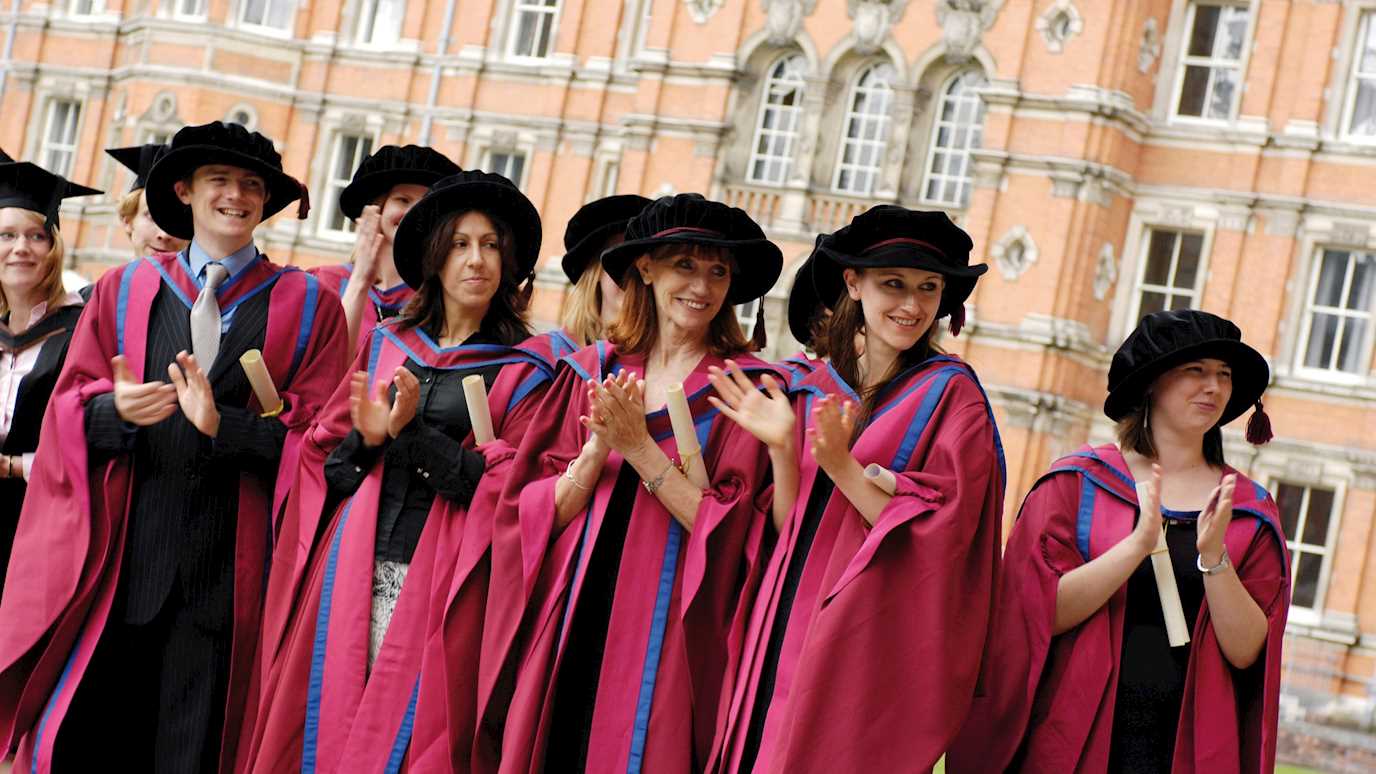Key information
Duration: 2 years full time
Institution code: R72
Campus: Egham
UK fees*: £4,712
International/EU fees**: £25,000
About us
Internationally recognised for the quality of teaching and world-leading research, the Department of Biological Sciences at Royal Holloway is a dynamic and friendly place to study. We currently admit around 180 undergraduate students each year and about 50-60 postgraduate research students across a wide variety of laboratory and field-based research training courses.
As a vibrant scientific community, our research is grouped into three major areas: Biomedical Sciences, Plant Molecular Sciences, and Ecology Evolution and Behaviour. The department is also host to the Institute of Cardiovascular Research and Centre for Systems and Synthetic Biology and the Centre of Gene and Cell Therapy.
Our research is funded by Research Councils, charities, government agencies, a wide range of other commercial, environmental and research organisations. Research collaborations take place through projects right across the department. Our widely published research teams are well known for pioneering work in molecular genetics, gene and cell therapy, our research into bipolar disorder, evolutionary and conservation ecology, biodiversity, mathematical epidemiology, plant biotechnology and seed biology. Our postgraduate research students regularly report their research findings, both nationally and internationally in symposia and publications.
To learn more about the postgraduate degree opportunities offered by the Biological Sciences department, please visit the department's Postgraduate research page.
Research facilities and environment
The research centre for Biomedical Sciences focuses on fundamental and applied research into the molecular mechanisms of disease and addresses biological hypotheses that are relevant for a wide range of human and animal diseases. The research centre for Plant Molecular Sciences focuses on fundamental research related to plant development, stress to the environment and pathogens, seed biology to address major issues for producing healthy seeds and food for the world, using innovative yet simple solutions, making an impact on what people eat; while exploring new state of the art molecular and analytical approaches. In the Ecology Evolution and Behaviour we study the way that organisms react, adapt and interact. We work with a range of living systems, from microbes to mammals, addressing long-standing and emergent biological problems. The department has established a reputation for fundamental field-based research. Our research is supported with the state-of-the-art molecular and mathematical techniques.
Research groups in the department have active interdisciplinary collaborations with numerous industrial partners in NHS, pharmaceutical and agrochemical companies and with many academic institutions and universities in UK and worldwide. Explore our research centres and Institutes here.
Assessment
Master of Philosophy (MPhil) involves two calendar years of full-time period study or the part-time equivalent. Assessment for the award is on the basis of a written thesis consisting of the candidate's own account of his/her investigations and an oral examination. The length of the Thesis shall not exceed 60,000 words.
Doctor of Philosophy (PhD) involves between two and three calendar years of full-time period study or the part-time equivalent. Assessment for the award is on the basis of a written thesis consisting of the candidate's own account of his/her investigations and an oral examination. The length of the Thesis shall not exceed 100,000 words.
Entry requirements
Applicants should have, or expect to be awarded, a First or Upper Second Class Honours Degree or MSc in an appropriate biological discipline. All members of academic staff can accept suitably qualified PhD students who we select for our studentships, or who have alternative means of support. To learn more about the research interests and activities of our staff, please visit relevant research group pages Biomedical Sciences; Ecology, Evolution and Behaviour; and Plant Molecular Sciences. Once you have identified a potential supervisor, please email the relevant group contact to discuss available projects, your qualifications and skills and if spaces are available to accommodate you. Contact details can be found in the staff directory on our website.
English language requirements
All teaching at Royal Holloway is in English. You will therefore need to have good enough written and spoken English to cope with your studies right from the start.
The scores we require
- IELTS: 6.5 overall. Writing 7.0. No other subscore lower than 5.5.
- Pearson Test of English: 61 overall. Writing 69. No other subscore lower than 51.
- Trinity College London Integrated Skills in English (ISE): ISE III.
- Cambridge English: Advanced (CAE) grade C.
- TOEFL ib: 88 overall, with Reading 18 Listening 17 Speaking 20 Writing 26.
Country-specific requirements
For more information about country-specific entry requirements for your country please see here.
Your future career
Our graduates have entered into a wide range of interesting careers, within academia and beyond, including Post-Doctoral and Lecturer positions in Academia in the UK and abroad, staff scientist positions in pharmaceutical and other private sector companies, biopharmaceutical consultancy, a range of managerial and marketing positions, Clinical trials coordinators, Editorial positions with science publishers to name a few.
Fees & funding
Home (UK) students tuition fee per year*: £4,712
EU and international students tuition fee per year**: £25,000
Other essential costs***: Lab based projects attract additional Lab fees (Bench fees) and other projects may also incur similar fees. These are in addition to the standard tuition fees. Such Lab fees are project-dependent and applicants should ask the project leader/supervisor for further details.
…How do I pay for it? Find out more about funding options, including loans, grants, scholarships and bursaries.
* and ** These tuition fees apply to students enrolled on a full-time basis in the academic year 2025/26.
* Please note that for research courses, we adopt the minimum fee level recommended by the UK Research Councils for the Home tuition fee. Each year, the fee level is adjusted in line with inflation (currently, the measure used is the Treasury GDP deflator). Fees displayed here are therefore subject to change and are usually confirmed in the spring of the year of entry. For more information on the Research Council Indicative Fee please see the UKRI website.
** This figure is the fee for EU and international students starting a degree in the academic year 2025/26.
Royal Holloway reserves the right to increase fees for overseas fee-paying students annually. Be aware that tuition fees can rise during your degree (if longer than one year’s duration), and that this also means that the overall cost of studying the course part-time will be slightly higher than studying it full-time in one year. The annual increase for continuing students who start their degree in 2025/26 will be 5%. For further information see fees and funding and the terms and conditions.
*** These estimated costs relate to studying this particular degree at Royal Holloway during the 2025/26 academic year and are included as a guide. Costs, such as accommodation, food, books and other learning materials and printing, have not been included.






















